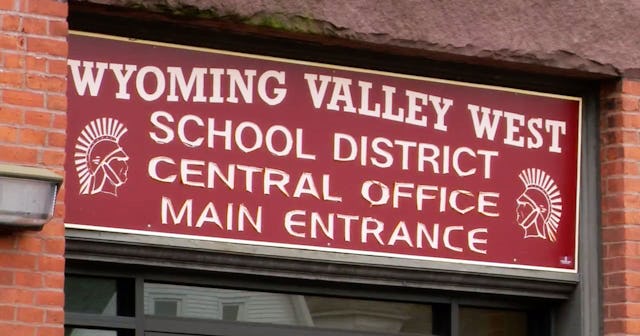School District That Threatened Foster Care Over Lunch Debt Turns Down $22K Donation To Pay It Off

This school district threat was clearly never about the money
A Pennsylvania school district received national attention last week after it sent out a letter to parents threatening to put their children into foster care if they didn’t immediately pay off school lunch debt. Now, the district is under fire again for turning away several individuals and organizations who have offered to donate money to pay the debts.
The letter was sent July 9 to all parents who have an outstanding lunch balance and warned that if they didn’t pay up, “The result may be your child being taken from your home and placed in foster care.” The school will be reporting them to dependency court which could result in their kids being removed from their homes.
According to state records, Wyoming West Valley School District is one of the poorest districts in the state of Pennsylvania. It’s situated just outside the former coal mining community of Wilkes-Barre. The economic distress in former coal mining areas has been a hot political topic for years, and especially in the last presidential election. Wyoming West claims to be struggling to make ends meet, and says that’s why it resorted to the threatening letter — it needs those debts paid so it can provide for the district’s kids, allegedly.
But since the letter was sent out, NPR reports that at least five donors have come forward who are willing to pay off all students’ debt in its entirety, about $22,000, and all of them have been turned away. One of them is a prominent local media figure who requested to stay anonymous. Another is Todd Carmichael, chief executive of Philadelphia-based coffee company La Colombe. Carmichael told NPR that he was one of four kids who grew up in a very poor family outside of Spokane, Washington, so he empathizes with the families that are struggling to pay lunch debt.
“I know what it’s like to be shamed at school. I know what these things are. And I know how my mother would react if someone threatened to take her children away,” he said.
But when Carmichael’s assistant reached out to district president Joseph Mazur, he says the conversation became combative and Mazur hung up abruptly.
“I’m just completely mystified by it,” Carmichael said. “I’m still picking through the pieces and saying, ‘What is this?'”
It’s pretty clear what it is. The threats this school district made toward poor parents were never about the money, or donations would happily have been accepted. That’s the conclusion Carmichael came to, as well.
“This really isn’t about the money,” he said. “I think it’s about teaching people who are struggling some sort of moral lesson they need to learn, no matter what the consequences are.”
This article was originally published on